Dr. Robin Stern - The Gaslight Effect: How to Spot and Survive the Hidden Manipulation Others Use to Control Your Life
Here you can read online Dr. Robin Stern - The Gaslight Effect: How to Spot and Survive the Hidden Manipulation Others Use to Control Your Life full text of the book (entire story) in english for free. Download pdf and epub, get meaning, cover and reviews about this ebook. year: 2007, publisher: Harmony, genre: Home and family. Description of the work, (preface) as well as reviews are available. Best literature library LitArk.com created for fans of good reading and offers a wide selection of genres:
Romance novel
Science fiction
Adventure
Detective
Science
History
Home and family
Prose
Art
Politics
Computer
Non-fiction
Religion
Business
Children
Humor
Choose a favorite category and find really read worthwhile books. Enjoy immersion in the world of imagination, feel the emotions of the characters or learn something new for yourself, make an fascinating discovery.

- Book:The Gaslight Effect: How to Spot and Survive the Hidden Manipulation Others Use to Control Your Life
- Author:
- Publisher:Harmony
- Genre:
- Year:2007
- Rating:3 / 5
- Favourites:Add to favourites
- Your mark:
The Gaslight Effect: How to Spot and Survive the Hidden Manipulation Others Use to Control Your Life: summary, description and annotation
We offer to read an annotation, description, summary or preface (depends on what the author of the book "The Gaslight Effect: How to Spot and Survive the Hidden Manipulation Others Use to Control Your Life" wrote himself). If you haven't found the necessary information about the book — write in the comments, we will try to find it.
Are You Being Gaslighted?
Check for these telltale signs:
1. You constantly second-guess yourself.
2. You wonder, Am I being too sensitive? a dozen times a day.
3. You wonder frequently if you are a good enough girlfriend/wife/employee/friend/daughter.
4. You have trouble making simple decisions.
5. You think twice before bringing up innocent topics of conversation.
6. You frequently make excuses for your partners behavior to friends and family.
7. Before your partner comes home from work, you run through a checklist in your head to anticipate anything you might have done wrong that day.
8. You buy clothes for yourself, furnishings for your apartment, or other personal purchases thinking about what your partner would like instead of what would make you feel great.
9. You actually start to enjoy the constant criticism, because you think, What doesnt kill me will make me stronger.
10. You start speaking to your husband through his secretary so you dont have to tell him things youre afraid might upset him.
11. You start lying to avoid the put-downs and reality twists.
12. You feel as though you cant do anything right.
13. You frequently wonder if youre good enough for your lover.
14. Your kids start trying to protect you from being humiliated by your partner.
15. You feel hopeless and joyless.
Your husband crosses the line in his flirtations with another woman at a dinner party. When you confront him, he asks you to stop being insecure and controlling. After a long argument, you apologize for giving him a hard time.
Your boss backed you on a project when you met privately in his office, and you went full steam ahead. But at a large gathering of staffincluding yourshe suddenly changes his tune and publicly criticizes your poor judgment. When you tell him your concerns for how this will affect your authority, he tells you that the project was ill-conceived and youll have to be more careful in the future. You begin to question your competence.
Your mother belittles your clothes, your job, your friends, and your boyfriend. But instead of fighting back as your friends encourage you to do, you tell them that your mother is often right and that a mature person should be able to take a little criticism.
If you think things like this cant happen to you, think again. Gaslighting is when someone wants you to do what you know you shouldnt and to believe the unbelieveable. It can happen to you and it probably already has.
How do we know? If you consider answering yes to even one of the following questions, youve probably been gaslighted:
Does your opinion of yourself change according to approval or disapproval from your spouse?
When your boss praises you, do you feel as if you could conquer the world?
Do you dread having small things go wrong at homebuying the wrong brand of toothpaste, not having dinner ready on time, a mistaken appointment written on the calendar?
Gaslighting is an insidious form of emotional abuse and manipulation that is difficult to recognize and even harder to break free from. Thats because it plays into one of our worst fearsof being abandonedand many of our deepest needs: to be understood, appreciated, and loved. In this groundbreaking guide, the prominent therapist Dr. Robin Stern shows how the Gaslight Effect works and tells you how to:
Turn up your Gaslight Radar, so you know when a relationship is headed for trouble
Determine whether you are enabling a gaslighter
Recognize the Three Stages of Gaslighting: Disbelief, Defense, and Depression
Refuse to be gaslighted by using the Five Rules for Turning Off the Gas
Develop your own Gaslight Barometer so you can decide which relationships can be savedand which you have to walk away from
Learn how to Gasproof Your Life so that youll never again choose another gaslighting relationship
Dr. Robin Stern: author's other books
Who wrote The Gaslight Effect: How to Spot and Survive the Hidden Manipulation Others Use to Control Your Life? Find out the surname, the name of the author of the book and a list of all author's works by series.

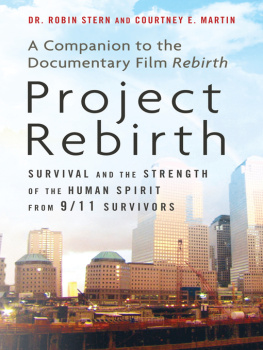
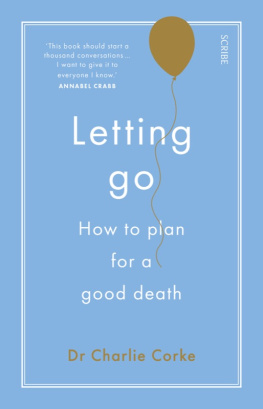
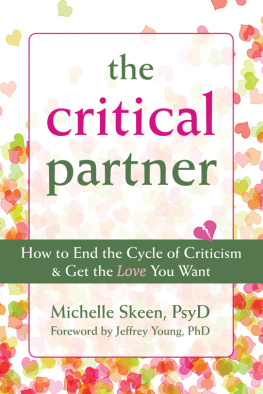
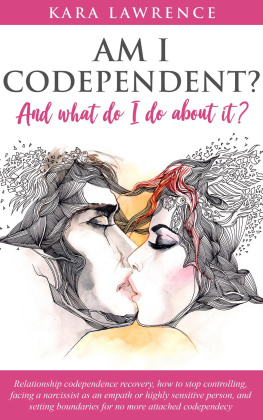
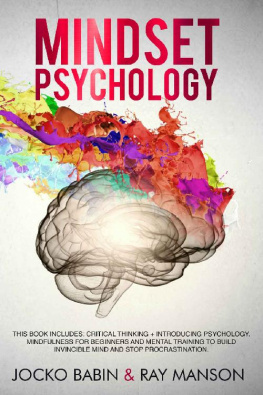
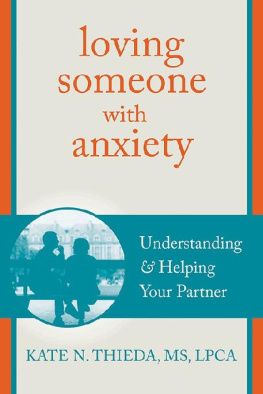
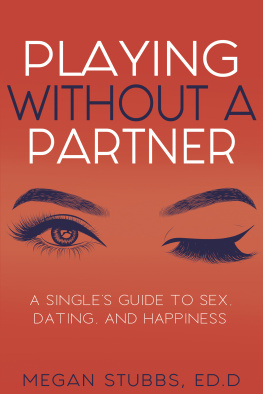
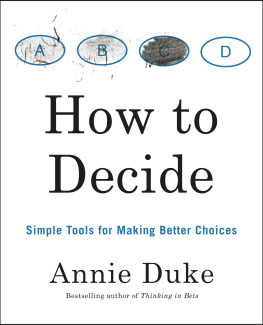
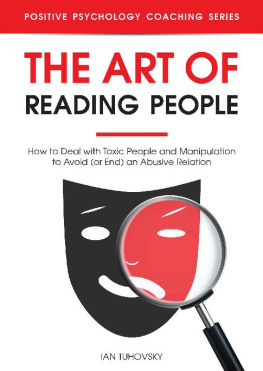
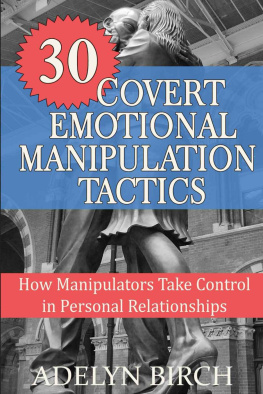
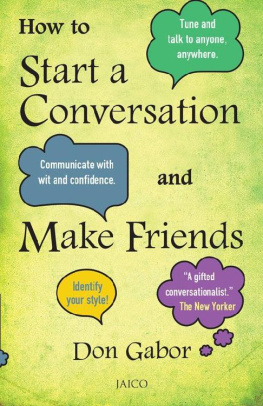
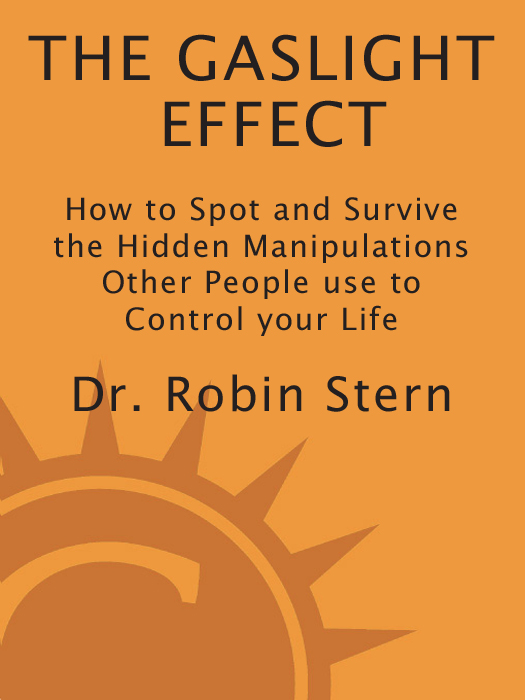
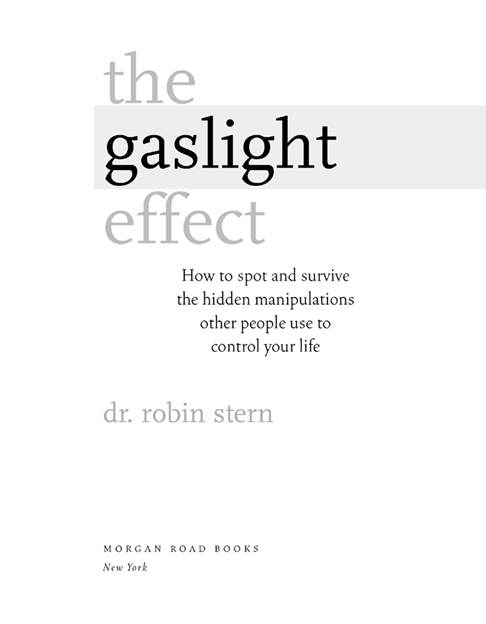
 MORGAN ROAD BOOKS
MORGAN ROAD BOOKS